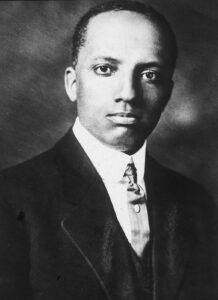A Brief Overview

“Seize the opportunity to honor the too-often neglected accomplishments of black Americans in every area of endeavor throughout our history.” – President Gerald Ford
Black History Month celebrates the achievements of African Americans and recognizes their central role in U.S. history. Our country would not be the same without their contributions to education, literature, music, and every other aspect of our lives.
It is important to know what happened in the past, to open doors to the future and grow as a country. It allows us to be active in the process of creating change, equality, and encouraging diversity.
What does it represent?
President Gerald Ford officially recognized Black History Month (also referred to as African American History Month) in 1976, which pays tribute to the generations of African Americans who struggled with adversity.
However, Black History Month got its start way before it was officially recognized. Black educators and the Black United Students at Kent State University first proposed Black History Month in February 1969. A year later, the first celebration of Black History Month took place at Kent State from January 2 to February 28.
Six years later, it was being celebrated all across the country at educational institutions, centers of Black culture, and community centers once President Gerald Ford officially recognized it during the United States Bicentennial celebration.
Origin of the month
Before the idea of dedicating a month to the achievements of African Americans came to life, there was one week dedicated to educating people about the history of African Americans in the country.

Carter G. Woodson, who was the creator of the idea and finalized its celebration, chose February for traditional and reform reasons. It is believed he selected February to encompass the birthdays of Abraham Lincoln and Frederick Douglass, who played a significant role in shaping black history.
Since black communities across the country had pre-existing celebrations for their birthdays, Woodson decided to build the week around the traditions.
How to support and celebrate
Now that you know about Black History Month and what it represents, join us in celebrating it all month long. Below is a list of ways you can support and celebrate this month and everything it stands for.
- Research and understand what this month represents
- Educate yourself on the obstacles African Americans face in our country
- Find black-owned businesses to support
- Buy from black-owned small businesses
- Like, share, and engage with black-owned businesses on their socials
- Sponsor black entrepreneurs and promote their business
- Hold corporations accountable for supporting black businesses
- Take stock of diversity in your own business
- Donate your company’s services
- Get strategic with your charitable donations
- Choose to change your habits as a consumer
- Keep the momentum going – don’t stop once the month ends
List of Black-Owned Small Businesses to Support
- Freeman Human Resource Management
- Full-service Human Resource services and coaching to all business industries.
- The Foundation For Integrated Housing
- Clean and safe housing for individuals at risk of being displaced.
- Made by YUB
- Home-made desserts with gluten-free, vegan, and “pupper” treats available.
- Taste the Horn
- Hand blended traditional Ethiopian hot sauce.
- Winston Engineering
- Electrical design, mechanical, and plumbing engineering, and RV Park electrical design services.
- Do Your Best
- Apparel and accessories with inspirational messages.
- Desert Hot Springs Chiropractor
- Chiropractic and wellness services.













